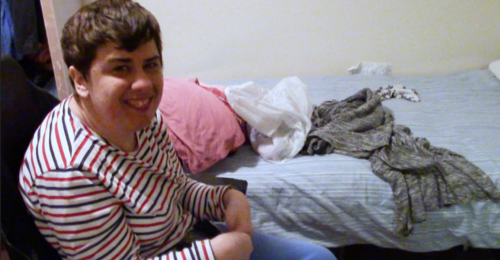Sorry you don't have access to this video
Communication strategies to support making choices
...
Finding ways to support people to communicate what they want
Sandra is supported by care worker Ruth. Sandra lives in residential care for support with her Huntington's disease. This is a progressive neurological condition. Huntington's has various affects upon communication.
It affects the voice by altering coordination of the muscles in the mouth and tongue. This is known as dysarthria (dis-ah-three-ah). This can occur in many other neurological conditions, such as cerebral palsy, multiple system atrophy, Parkinson's and brain injury. Huntington's can also impact on cognition, by slowing down processing time.
People might need longer to make choices and then say what they want. Here, Ruth uses an approach of offering three options to Sandra, and reminding her what the choice is for. She is very patient and makes the process fun for both of them.
It affects the voice by altering coordination of the muscles in the mouth and tongue. This is known as dysarthria (dis-ah-three-ah). This can occur in many other neurological conditions, such as cerebral palsy, multiple system atrophy, Parkinson's and brain injury. Huntington's can also impact on cognition, by slowing down processing time.
People might need longer to make choices and then say what they want. Here, Ruth uses an approach of offering three options to Sandra, and reminding her what the choice is for. She is very patient and makes the process fun for both of them.



